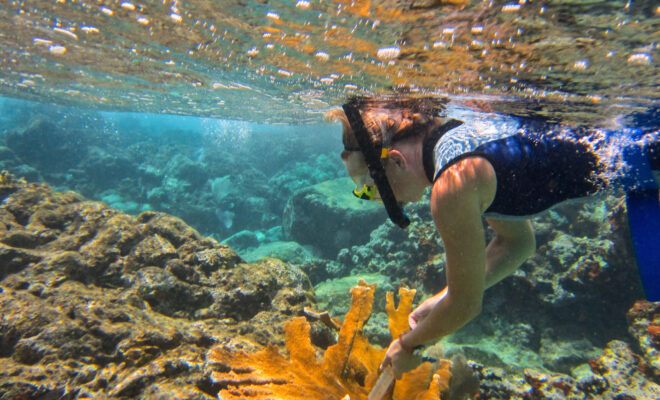
Feature
Mote Marine Laboratory: Leading the Way in International Marine Science Diplomacy
By Hallie Peilet Young | Photos Courtesy of Mote Marine Laboratory | December 2023
Nestled along the tranquil shores of Florida’s Gulf Coast, Mote Marine Laboratory stands as a beacon of hope and innovation in the realm of marine science diplomacy. Beyond its idyllic coastal setting, Mote has taken on a mission of global significance, fostering international collaborations that cross the world’s oceans. Mote’s pioneering initiatives span nations like China, Chile, Korea, and Japan, each focused on diverse research endeavors. Their collective efforts have not only expanded our understanding of marine ecosystems but also led to groundbreaking developments in marine conservation.
Mote’s Expansive Reach: A Global Odyssey
Many think of Mote as just local to the Suncoast, but Mote has embarked on an extraordinary journey of global proportions. The laboratory’s reach extends far beyond its surroundings, encompassing an extensive network of research and educational partnerships worldwide. This commitment to global engagement has made Mote a cornerstone of international marine science diplomacy.
Kevin Claridge, Vice President for Sponsored Research & Coastal Policy Programs at Mote, elaborates on the multifaceted nature of these collaborations. He highlights that international cooperation is not confined solely to research endeavors but is integral to all aspects of Mote’s operations, including research, education, and even their renowned aquarium.
“You know it’s not just the research side of the house, but also, if you had to divide Mote into research, education, and maybe an aquarium, all three of those components have a strong international collaboration component,” Claridge said.
He illustrates how the aquarium serves as a platform for showcasing international collaborations. Exhibits featuring Pacific marine life, for example, are designed in partnership with experts from Taiwan, emphasizing the holistic approach to cooperation that defines Mote’s mission.
Most recent is his work on harmful algae blooms around the globe. On the Suncoast, we know Karenia brevis, also known as ‘Red Tide,’ all too well. We know it’s here when we get the stench of dead fish and a scratchy throat. For other countries, like Korea or Japan, it may look different.
“It’s really a collaborative nature,” Claridge explains. “Science is not done in a vacuum. Some are a little further ahead on a topic; some are a little further behind.
Some people are implementing different things in
applied fashion.”
A Global Tapestry of Research
Along with Claridge’s U.S. Harmful Algal Bloom Control Technologies Incubator, an extensive tapestry of research collaborations contribute to our understanding of diverse marine ecosystems and their conservation. These collaborative efforts often transcend borders, uniting scientists from across the world to tackle shared challenges.
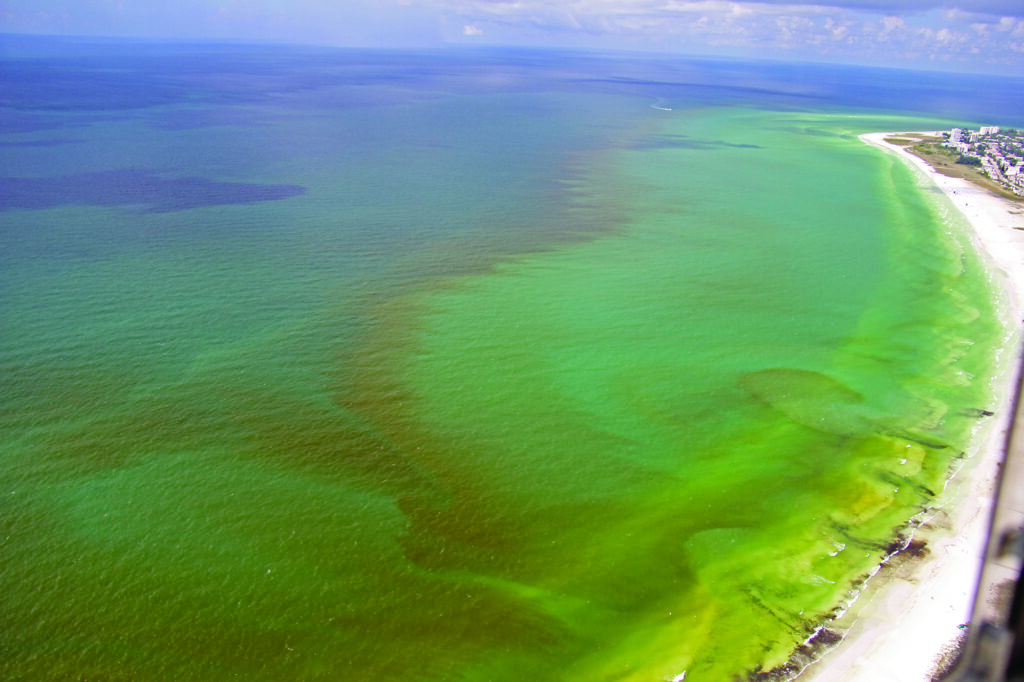
One such initiative, led by Dr. Demian Chapman, Senior Scientist & Director at Mote’s Center for Shark Research, has made waves in the realm of shark conservation. Dr. Chapman heads the “Global FinPrint” project, which is the world’s largest shark survey, spanning 58 nations. The project has achieved significant milestones, including the establishment of new international trade regulations for these remarkable species.
Chapman explains, “The project was first funded in 2015 by Paul G. Allen, the co-founder of Microsoft, through his family foundation. The inspiration came from a study with elephants, where planes were flown over different countries to tally the elephant population.”
However, counting sharks from the air is not feasible. Instead, the project focuses on coral reef sharks, acting as a vital indicator for ocean health. By placing cameras with bait in front of them on coral reefs, the team counts the sharks that come into view. This approach provides valuable data, allowing researchers to compare shark populations in various regions and assess the impact of different management measures.
The survey has revealed significant insights into the state of global shark populations. It found that the main reef shark species worldwide have declined by an average of 63% over three decades, classifying them as threatened with extinction. Some regions even showed an absence of sharks due to unregulated fishing practices.
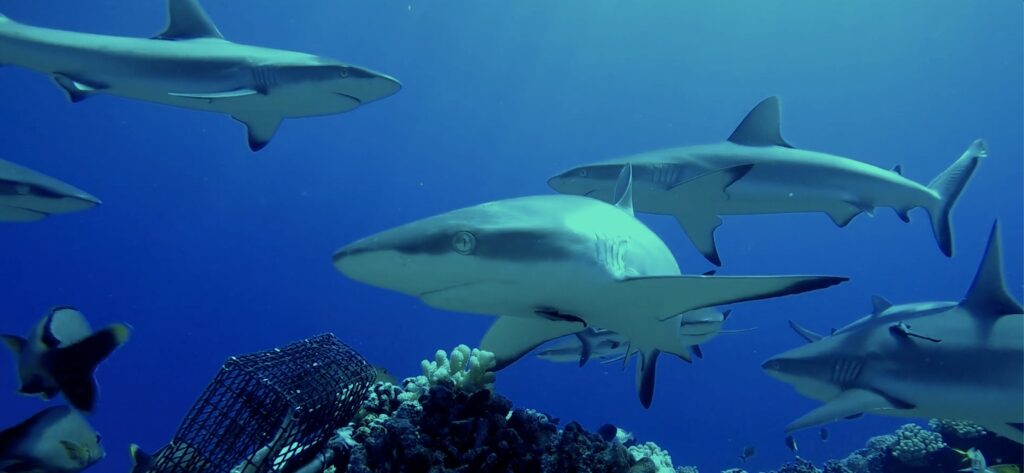
The project is now shifting its focus toward shark conservation, working with local researchers and fishers to improve management measures and stabilize shark populations. Chapman emphasizes the importance of these efforts. “It’s really about local grassroots conservation at the end of the day,” he said. “We want sharks to be robust and present species in these countries.”
Coral Conservation on a Global Scale
Dr. Erinn Muller leads another groundbreaking initiative at Mote, namely the “International Coral Gene Bank” within the Global Coral Biobank Alliance. This alliance involves partnerships with countries such as the Philippines, Australia, Monaco, Indonesia, and French Polynesia. Together, they strive to preserve and restore coral reefs, vital to marine ecosystems.
Muller recognizes the invaluable nature of international cooperation.
“For me, personally, and for the research in our initiative, the connection across countries helps give you a global perspective on nature issues everyone’s trying to tackle all at once,” Muller said.
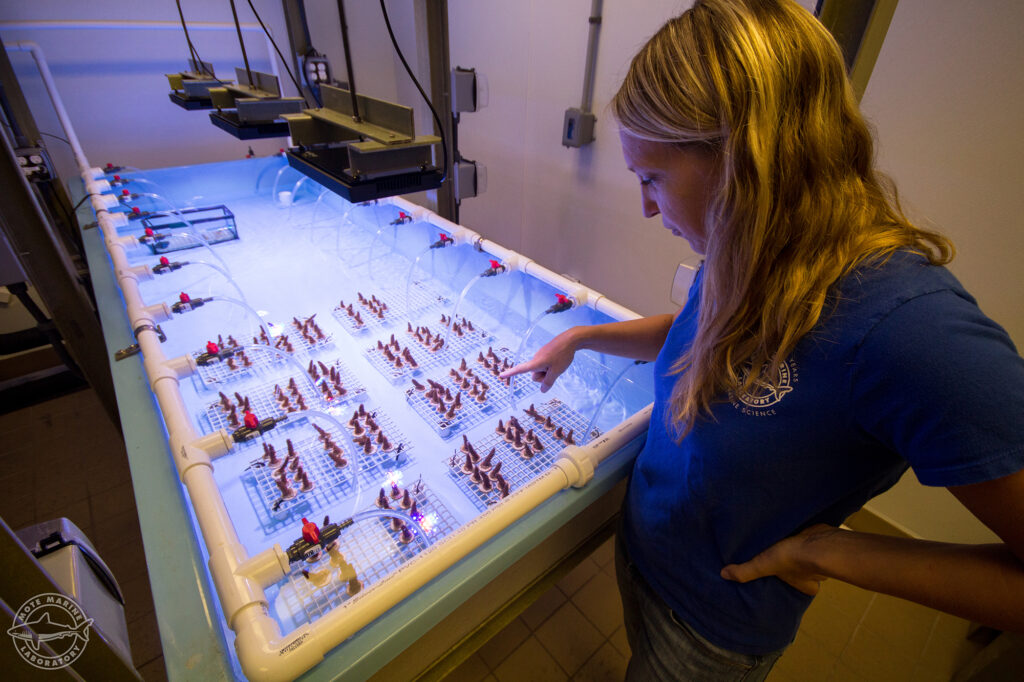
She acknowledges the diversity of approaches and solutions that different countries bring to the table, enabling
collaborative learning. Muller further underscores the importance of technology integration, with some countries excelling in automation and AI, thereby pushing the boundaries of coral restoration.
She emphasizes, “A lot of the necessary technology that’s going to allow us to upscale reproduction is getting developed in other countries but is getting developed in a way that people around the world will be able to utilize it.”
The power of international collaboration lies in its ability to create a robust network of experts who can share successes, innovations, and inspiration. Muller says it often brings a perspective many American scientists never would’ve considered.
“Sometimes you get so entrenched in your own issues that it’s really therapeutic to talk to people globally,” Muller said. “Everyone’s facing slightly different challenges but we’re all working toward the same goal. It’s amazing to have to that type of network to lean on each other scientifically, technologically and emotionally.”
International Marine Science Diplomacy: A Unified Vision
The global collaborations initiated by Mote Marine Laboratory transcend mere research endeavors. They reflect a commitment to international marine science diplomacy, transcending political borders and fostering partnerships with shared objectives.
“The culture of sharing among scientists is a powerful force, transcending political differences and uniting experts from diverse nations,” Claridge said. “The camaraderie among scientists fosters a collaborative spirit, allowing for the exchange of knowledge and solutions.”
That seems to be the sentiment all three agree upon: Without collaboration, this type of work can feel very lonely, and the pearls they’ve found from international colleagues are invaluable.
“Sometimes the biggest breakthrough comes in the coffee or the beer together before or after the actual conference,” Claridge said.
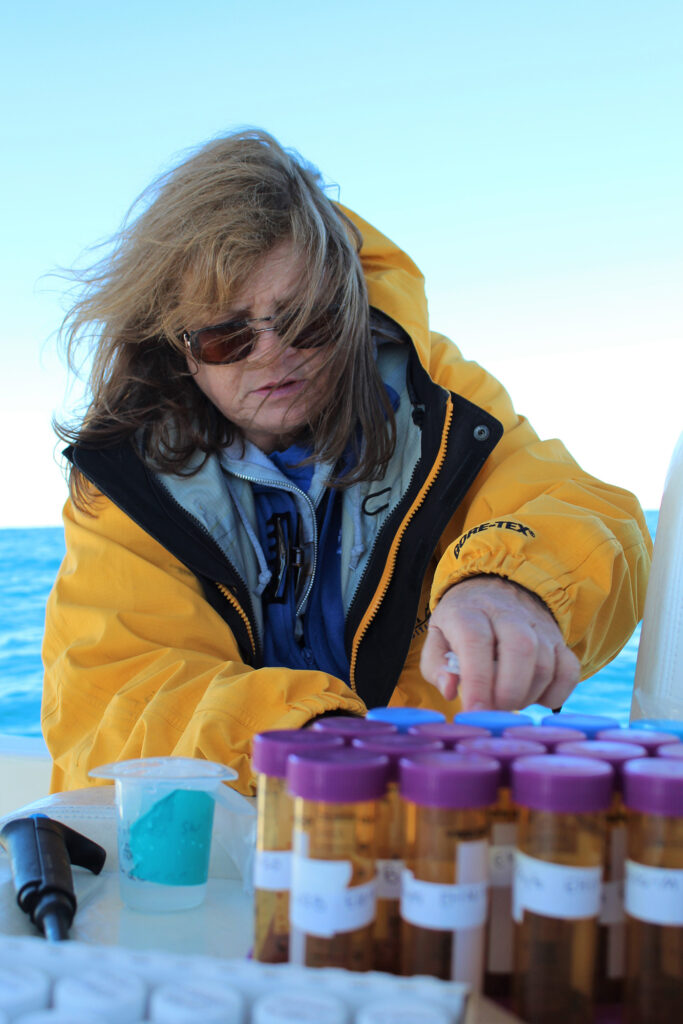
Muller said that in having the opportunity to work in countries like Israel, Jordan and Saudi Arabia, where resources may look different, everyone’s pursuit of scientific breakthrough puts them on an even playing field.
“Hearing other people’s successes gives you that hope and inspiration to keep moving through and be that next story of hope,” Muller said.
From coral, to sharks, to algal blooms, these collaborations not only expand our scientific understanding but also hold immense promise for the conservation of marine ecosystems and the livelihoods of coastal communities. In an era where the health of our oceans is of paramount importance, Mote Marine Laboratory’s global initiatives stand as a beacon of hope, reminding us that when it comes to the oceans, we are all in the same boat.
Dr. Chapman is searching for volunteers to help scientists sift through about 5,000 videos to count sharks for his project. If you are interested in helping, please visit mote.org/volunteer.



You must be logged in to post a comment Login